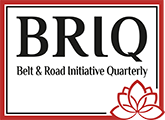EDITORIAL
Belt&Road and Islamic World: The Pathway of Civilizations Converging
Over the past decade, the world has witnessed rapid changes and transformations, largely to humanity’s benefit. Thirty years ago, Atlantic imperialism, led by the United States, proclaimed through neoliberal globalization that it would flatten nation-states. In the current era, as hegemonism wanes, nation-states are increasingly asserting themselves. The thesis of neoliberal globalization claimed that we had reached the “end of history,” where borders would disappear, and the world would become a global village dominated by Atlantic imperialists. However, anticipating resistance to this view, hegemonism introduced the “Clash of Civilizations” thesis to suppress opposition to the “global village.” This theory posited a reactionary resistance from “Eastern civilizations,” primarily Islam, against the “Western civilization” poised to usher humanity into its “golden age.” This framework has ideologically supported imperialist interventions globally, especially those justified by “human rights violations,” for the last three decades. Today, Atlantic imperialism frames global alignments as “Free Western civilization” versus the “authoritarian, nationalist” Eastern civilizations of Africa, Asia, and Latin America. The ongoing violence in Palestine by Israel exemplifies the stance of “Western civilization.” The source of Islamophobia, racism, and all forms of discrimination lies here.
Conversely, the agenda of developing states combating hegemonism focuses on fostering harmony and integration among civilizations, not conflict. The driving force behind increasing cooperation between Iran, Russia, China, and Latin America; between Russia and China and the Arab world, Africa, and Islamic countries; and between Turkey, Russia, China, and Latin America is undoubtedly a collective stance against hegemonism. This cooperation increasingly rests on shared values beyond mere mutual gain. Among these developing states, there is a spirit of integration, sharing, and mutual respect. The developing world is uniting around independence, public welfare, and humanitarian values.
A prime example of inter-civilizational cooperation today is the evolving relationship between Islamic countries and China over the last 40 years. This relationship has strengthened even as the US has led global campaigns accusing China of committing “genocide against its Muslim population,” attempting to paint China as an “enemy of Islam.” Since the launch of the Belt and Road Initiative (BRI) in 2013, the significance of these relationships has grown, encompassing massive economic investments. According to 2022 official data, investments in Islamic countries under the BRI exceed $400 billion. More crucially, the BRI, founded on joint development, is shifting the balance of world politics. Islamic countries, previously constrained by the Atlantic system’s status quo into internal sectarian and ethnic conflicts, are breaking free from this bind.
The historic Silk Road facilitated cooperation, mutual learning, and tolerance among diverse cultures, propelling the advancement of world civilization. The 21st-century Silk Road, embodied by the Belt and Road Initiative, is forging pathways for the convergence and eventual creation of a new civilization.
FİKRET AKFIRAT
Editor-in-Chief
